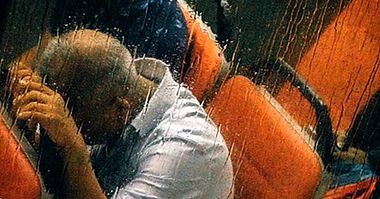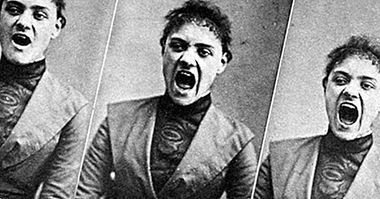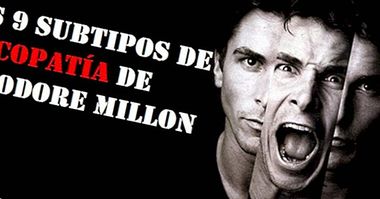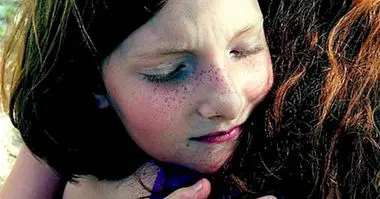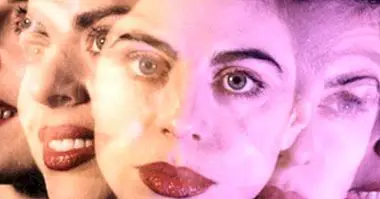Hypomania: what it is, symptoms, and relationship with bipolarity
Hypomania is a state of mind that is characterized by an excitement or euphoria that occurs more mildly than in mania. In other words, it is the moderate case of the latter; which does not usually seriously affect the functionality of the person.
Begin by explaining what the "mania" is, In this article we will see how hypomania is defined and in what circumstances it may occur.
- Related article: "Bipolar disorder: 10 features and curiosities you did not know"
What is hypomania?
The word mania comes from the ancient Greek; means "frenzy" or "exalted, furious state". We use it both in colloquial and specialized language to refer to different situations related to the latter. For example, to talk about a fixed concern about something; a strange custom; an aversion that one person feels towards another; or also to speak of a clinical criterion of psychopathology characterized by a state of exaltation.
On the other hand, the prefix "hiccup", which derives from the Greek "hypo", means "below". In this sense, and in the context of psychopathology, hypomania is defined as a state of exaltation which is characterized by a decrease in the need to sleep, a high level of energy, acceleration of metabolism, hyperactivity and / or irritability and increased psychomotor activity.
The difference between "mania" and "hypomania" (and the reason why the prefix "hipo" is added), is that the former does not significantly impact the functionality of the person and also does not include psychotic symptoms. In this sense, hypomania can also be defined as a kind of mania but less extreme .
- Maybe you're interested: "The 16 most common mental disorders"
Main diagnostic criteria
The Diagnostic and Statistical Manual of Mental Disorders in its fifth version (DSM-V), includes the "energy increase or objective-oriented activity with respect to the habitual in the subject", as a clinical criterion to detect hypomania.
For its part, the International Classification of Diseases of the World Health Organization also includes the increase of energy as a diagnostic criterion. This last along with the elevation of the mood .
Likewise, if any person has presented manifestations of hypomania, but not enough to diagnose it, or not with the necessary duration to consider it as a disorder; It can be a "hypomanic episode".
The above is included in the category of "Other specific bipolar disorders and related conditions" of the DSM-V.
Hypomanic episode
A hypomanic episode is not in itself a clinical category or a disorder , but one of the manifestations of others. Specifically, it occurs in the condition known as type II bipolar disorder.
The hypomanic episode is characterized by a state of mind that usually it is not severe enough to cause the person a clinically significant discomfort (the one that prevents him from effectively performing his daily activities and responsibilities). For example, the hypomanic episode does not prevent the person from working; in any case, the opposite occurs: the person does not need to take time off.
Likewise it is an episode that does not require hospitalization and that does not present symptoms of psychosis. The above (clinically significant discomfort, need for hospitalization or psychotic symptoms) are characteristic of a manic episode, and usually occur in type I bipolar disorder. Hypomanic episodes may also occur in cyclothymia or cyclothymic disorder.
symptom
Usually the episode of hypomania lasts all day and for at least 4 days . In the latter, a state of mind different from that of habitual depression can be distinguished and includes some symptoms of mania.
The above may even be functional or adaptive for some people, since the increase in energy also increases creativity, security and self-confidence. In other people, hypomania may manifest itself as irritability and easy distraction .
The main symptoms of the hypomanic episode are the following:
- High self-esteem and grandiloquence .
- Decrease in the need to sleep (feeling of rest after only 3 hours of sleep).
- More need to talk and even pressure to continue talking.
- Fugue of ideas or subjective experiences that thoughts go very fast.
- Ease of distraction
- Increase the activity aimed at achieving objectives, for example at work, in school, in sexuality or in daily socialization.
- Excessive involvement in activities that are at high risk of undesirable or painful consequences, for example, gambling or uncontrolled purchases.
For diagnosis and treatment, it must be ruled out that the above symptoms are caused by the effects of a substance (such as drugs or medications), or by a general medical condition (for example hyperthyroidism). On many occasions, people who have hypomanic episodes are diagnosed with type II bipolar disorder , issue that requires a more specific approach.
In other cases, it can be presented as an effect of taking antidepressants, in this case it also requires a certain approach and control, which does not require a diagnosis of bipolarity.
Bibliographic references:
- Bressert, S. (2018). Hypomanic Episode Symptoms. Retrieved July 27, 2018. Available at //psychcentral.com/disorders/hypomanic-episode-symptoms/.
- Coryell, W. (2018). Bipolar disorders Retrieved July 27, 2018. Available at //www.msdmanuals.com/en/professional/psychiatric-disorders/transfers-of-benefit-benefits-bipolar-disorders.
- De Dios, C., Goikolea, J.M., Colom, F., et al. (2014). Bipolar disorders in the new classifications: DSM-5 and ICD-11. Journal of Psychiatry and Mental Health, 7: 179-185.
- Harrap (2005). Mania. Spanish dictionary. Retrieved July 27, 2018. Available at //www.wordreference.com/definicion/man%C3%ADa.


